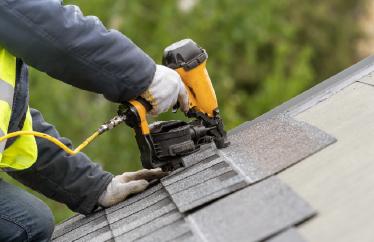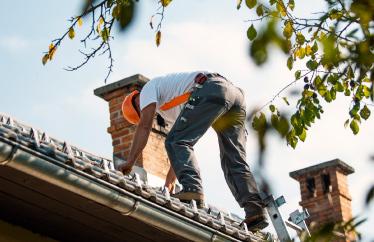For many people, a house is the biggest investment they’ll ever make. And whether you’re a first-time homeowner or you’re buying your third property, you’re bound to end up having to pay for some hidden costs along the way.
Here are six hidden costs of homeownership and how to pay for them (hint: you’ll need a rainy day fund).
1. Property taxes
Be prepared to pay property taxes and keep in mind that they rarely, if ever, decrease. Homeowners often pay them every month along with their mortgage payments. If your loan is backed by the Federal Housing Administration, you’re required to have an escrow or impound account.
If you don’t have to make property tax payments through an escrow account, they may be due at the end of the year. In some counties, you might pay them in installments. To learn more, take a look at our guide on how to change your homeowners insurance with an escrow account.
2. Homeowners association fees
Whenever you move into a new home or condominium, you become part of a community. In many cases, there are fees associated with the maintenance and general upkeep of shared common areas. The money collected might cover snow removal, landscaping and mowing or repairs to a clubhouse or meeting room.
Monthly homeowners association (HOA) fees for standard single-family homes tend to cost around $200 or $300. But rates can vary depending on several factors, including how recently a housing community was built and the kinds of amenities that are available. That’s why it’s best to know how much fees cost upfront.
3. Insurance premiums
If you own a home, another cost you should include in your budget is insurance. At Hippo, that’s a subject close to our hearts.
The average annual homeowners insurance premium is $2,601 a year. But the amount you pay may be higher or lower based on where you live and the kind of policy you choose.
The average annual homeowners insurance premium costs $1,120, according to the most recent data provided by the National Association of Insurance Commissioners. CLICK TO TWEET
Homeowners insurance typically covers personal possessions, liability for injuries that take place on your property, the structure of your house and additional costs associated with living elsewhere if your home is severely damaged. If you live in an area prone to natural disasters, you might need a supplemental policy like flood insurance.
4. Repairs and maintenance costs
Repairing or replacing a roof, furnace or air conditioner can be expensive. And at some point you might have to address plumbing issues or trade in some old appliances.
Budgeting for home maintenance is something else you’ll have to factor into the cost of homeownership. You’ll need money to keep your yard eco-friendly and in tip-top shape.
Financial experts generally recommend setting aside 1% of your home’s value to cover the cost of unexpected repairs and maintenance. If you’re trying to save money, you’re better of doing some of the work yourself. Just make sure you have enough funds for the materials you need to get the job done.
5. Costs associated with selling a home
Having a home that’s well maintained not only lets you enjoy your house while you’re living there but it also prevents you from being saddled with additional costs when you’re ready to sell it.
Replacing your roof or furnace might be something you want to put off. But failing to make necessary repairs or meet demands made by potential homebuyers could hurt your market value or cost you a sale.
6. Pest control costs
Pests are a real concern for many homeowners. Over time, all sorts of critters — like termites, ants, spiders and rodents — might invade your home. Depending on how serious the problem is, you might need to fumigate your house.
If you’re interested in buying a home, make sure you hire an inspector to check for bugs and termites that could cause structural damage. While lenders don’t always require homebuyers to pay for pest inspections, it’s important to have one done. You don’t want to close on a house only to find out later that there’s an issue.
Build a rainy day fund
It’s always better to be prepared for a storm than to be caught in a downpour without an umbrella. Despite the high costs of homeownership, owning your own property can be a rewarding experience.
Hope for the best and prepare for the worst by keeping enough money in your savings account to cover these hidden costs. Make sure you account for all of the hidden expenses and fees associated with buying a home and budget accordingly.




